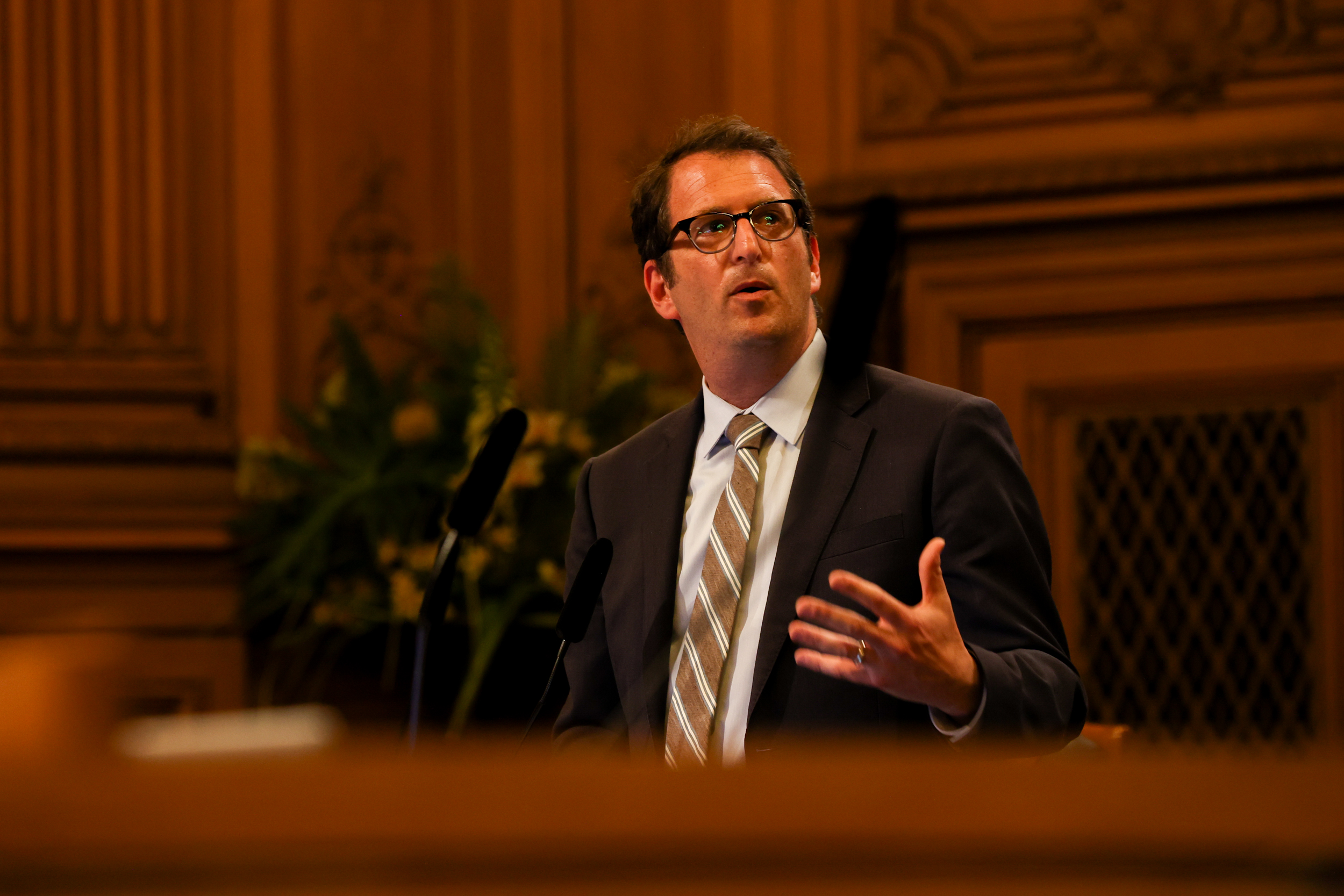The San Francisco Board of Supervisors powered through a short meeting Tuesday, putting one controversy to bed and setting the date to deal with another—but not before getting an earful.
The board also introduced legislation to allow cannabis lounges to sell food and beverages and host performance events, and called for hearings on the city’s drug overdose crisis and office space-to-housing conversions.
Commission Controversy Closes
The board passed the prohibition on demanding preemptive resignation letters by a vote of 8-to-2, with Supervisors Rafael Mandelman and Catherine Stefani opposed.
Supervisor Dean Preston, the legislation’s chief sponsor, characterized the practice by Mayor London Breed’s administration as having a chilling effect on the independence of commissioners.
He placed these remarks in the context of policy struggles at the San Francisco Police Commission, where a mayoral appointee Max Carter-Oberstone accused Breed of unduly pressuring him on an upcoming decision to limit pretextual stops, where police use traffic stops to essentially fish for more serious offenses. The practice has been described as “a major driver of persistent racial disparities in policing in San Francisco,” according to a release from Preston’s office.
The Standard’s investigation of Carter-Oberstone’s allegations led to the discovery of Breed’s administration demanding preemptive resignation letters not only from Carter-Oberstone but also many other commission appointees, in a practice which appears to have been both widespread and inconsistent.
In opposing the item, Mandelman characterized the ordinance as “absolutely unnecessary” as City Attorney David Chiu had already found that the City Charter rendered them void anyway, and also noted that it was reasonable for Breed to “maintain some level of direction and control” over her appointees. Breed also announced an end to the practice once the controversy broke.
Appointments on many commissions are split between the mayor and the board, but the board gets to approve the mayor’s nominees. This includes the Police Commission, where supervisors rejected Breed’s nomination of prosecutor and former district attorney candidate Nancy Tung in 2020.
Supervisors Joel Engardio and Matt Dorsey, who have reputations as being supportive of Breed and the police, both voted for the ordinance.
Engardio described his vote as being “not about debate over the mayor’s power, but about good government.”
‘Where’s Walton?’
The board voted to continue a hearing on the city’s controversial reparations plan until its March 14 meeting, due to the failure of Supervisor Shamann Walton, the plan’s primary sponsor, to make Tuesday’s meeting.
Walton is returning from a group birthday celebration trip to Colombia, where, presumably among other activities, he enjoyed an outing at a local Hooters.
During public comment on the motion to continue, the board was reproved over the continuance from members of the committee that created the draft plan.
“Justice delayed is justice denied,” said former supervisor and committee member Rev. Amos Brown, describing how the hearing not taking place during Black History Month posed a particular pain point.
Activist Gloria Berry, another committee member, cited the difficulty in organizing turnout for rescheduled meetings due to community frustration.
More Items About Buildings and Drugs
During roll call, Mandelman introduced an ordinance that would allow the city’s cannabis lounges to sell refreshments and sell tickets to music and other performances. The law dovetails with Assemblymember Matt Haney’s bill in Sacramento to allow the same statewide, mimicking Amsterdam pot cafes.
Meanwhile, Supervisor Ahsha Safaí introduced two hearing requests relevant to two of the city’s major policy headaches: the drug overdose and housing crises.
One hearing will be on the Chief Medical Examiner’s Office’s report on accidental drug overdoses in 2022, released last month. He’s also requested staff from the Department of Public Health and police department to report on policy responses.
The other hearing will be on the recent report from the board’s Budget and Legislative Analyst’s Office on plans to convert commercial space into housing, addressing difficulties with both increasing housing supply and reactivating Downtown.
